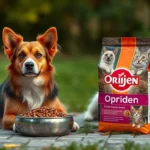
Introduction
Proper dog nutrition is crucial for the overall health and well-being of our furry friends. Just like humans, dogs require a balanced diet to thrive, which raises the question: can dogs eat cottage cheese? This topic is particularly relevant for dog owners who want to ensure they are providing the best possible care for their pets. Cottage cheese, a dairy product known for its creamy texture and high nutritional value, can be an excellent addition to your dog’s diet. Understanding its benefits and how to incorporate it safely is vital for pet owners.
Understanding Dog Nutrition
Nutritional Requirements of Dogs
Dogs, like all living beings, have specific nutritional needs that must be met to maintain their health. These requirements include:
- Proteins: Essential for growth, muscle development, and overall body function.
- Fats: Provide energy and are necessary for healthy skin and coat.
- Carbohydrates: Serve as a source of energy and aid in digestion.
- Vitamins: Help in various bodily functions and are crucial for maintaining health.
- Minerals: Important for bone health, nerve function, and overall physiological processes.
A balanced diet is particularly important for different dog breeds and life stages. Puppies, adult dogs, and senior dogs all have varying nutritional needs that should be addressed through their diet.
Common Myths About Dog Nutrition
Despite the wealth of information available, several misconceptions about dog diets persist. One common myth is that dogs can survive on a meat-only diet. While dogs are primarily carnivorous, they also require other nutrients found in vegetables and grains. Another myth is that all human foods are harmful to dogs. In reality, some human foods can be beneficial, provided they are safe and appropriately given.
It’s essential for dog owners to consult with a veterinarian to ensure their pets receive a balanced diet tailored to their specific needs.
Cottage Cheese: An Overview
What is Cottage Cheese?
Cottage cheese is a fresh cheese curd product that is made from curds of milk. The production process involves curdling milk, draining the curds, and rinsing them to remove acidity. The result is a creamy, mild-flavored cheese that is low in fat and high in protein.
Nutritionally, cottage cheese is a powerhouse. A typical serving (1 cup) contains approximately:
- Calories: 206
- Protein: 28 grams
- Fat: 10 grams
- Carbohydrates: 6 grams
- Calcium: 14% of the Daily Value (DV)
Health Benefits of Cottage Cheese for Dogs
Cottage cheese offers several health benefits for dogs:
- High Protein Content: The rich protein level supports muscle development and repair, making it an excellent choice for active dogs.
- Low Fat and Digestibility: Cottage cheese is generally low in fat and easy to digest, making it less likely to upset a dog’s stomach compared to other dairy products.
- Vitamins and Minerals: It contains vital nutrients such as calcium, phosphorus, selenium, and B vitamins, which contribute to bone health, metabolism, and overall vitality.
Can Dogs Eat Cottage Cheese?
Safety Considerations
Can dogs eat cottage cheese? Yes, but there are some safety considerations to keep in mind. While plain cottage cheese is safe for most dogs, certain additives or flavors can be harmful. Always choose plain, low-fat cottage cheese without added sugars, salt, or artificial flavors.
Additionally, some dogs may be lactose intolerant, meaning they have difficulty digesting lactose, the sugar found in milk and dairy products. Signs of lactose intolerance in dogs can include:
- Diarrhea
- Upset stomach
- Gas
If your dog has shown signs of lactose intolerance in the past, it may be best to avoid cottage cheese altogether.
Serving Recommendations
When introducing cottage cheese into your dog’s diet, portion control is essential. The appropriate serving size can vary based on your dog’s size and dietary needs. As a general guideline:
- Small Dogs (up to 20 lbs): 1-2 tablespoons
- Medium Dogs (20-50 lbs): 1/4 to 1/2 cup
- Large Dogs (over 50 lbs): 1/2 to 1 cup
Cottage cheese can be fed to dogs 1-2 times a week as a treat or mixed with their regular food.
How to Introduce Cottage Cheese into Your Dog’s Diet
Introducing cottage cheese to your dog’s diet should be done gradually. Start with a small amount mixed into their regular food, and observe how they react. Signs of intolerance or adverse reactions to watch for include:
- Vomiting
- Diarrhea
- Excessive gas
If your dog tolerates the small amount well, you can gradually increase the serving size.
Alternatives to Cottage Cheese
Other Dairy Options
If you’re exploring dairy options for your dog, there are several alternatives to cottage cheese that can also be nutritious:
- Plain Yogurt: Similar to cottage cheese, plain yogurt is high in protein and can be a good source of probiotics, which are beneficial for gut health.
- Ricotta Cheese: A softer cheese that can be easier for some dogs to consume, ricotta is also high in protein.
When considering these alternatives, always opt for plain varieties without added sugars or artificial ingredients.
Non-Dairy Alternatives
For pet owners seeking non-dairy options, there are plenty of alternatives that can provide similar nutritional benefits:
- Pumpkin Puree: Rich in fiber and great for digestion, pumpkin puree can be a healthy addition to your dog’s diet.
- Sweet Potatoes: Packed with vitamins and minerals, sweet potatoes are also a good source of carbohydrates.
Both pumpkin and sweet potatoes are generally safe for dogs and can be served cooked and mashed.
Common Questions About Cottage Cheese and Dogs
FAQs
Can puppies eat cottage cheese?
Yes, puppies can eat cottage cheese in moderation. The high protein content can be beneficial for growing puppies, but it’s essential to ensure they are not lactose intolerant.
Should dogs with specific health conditions eat cottage cheese?
Dogs with certain health conditions, such as pancreatitis or those on a low-fat diet, may need to avoid cottage cheese. Always consult your veterinarian before introducing new foods.
How much cottage cheese is too much for a dog?
Excessive amounts of cottage cheese can lead to digestive issues, including diarrhea. Stick to recommended serving sizes to avoid potential problems.
Expert Opinions
Veterinarians and pet nutritionists often emphasize the importance of a balanced diet. Many agree that cottage cheese can be a healthy treat for dogs, provided it is given in moderation and as part of a well-rounded diet. Always seek professional advice tailored to your dog’s individual needs.
Conclusion
Feeding your dog cottage cheese can offer numerous benefits, including high protein content and essential vitamins and minerals. However, it’s crucial to consider any potential safety issues, including lactose intolerance and harmful additives. Always consult with a veterinarian before introducing new foods into your dog’s diet, ensuring that you maintain a balanced and nutritious diet tailored to your pet’s specific needs.
When planning your dog’s meals, remember that nutrition is a vital component of their overall health and well-being. By making informed choices, you can help your furry friend live a long, healthy life.









